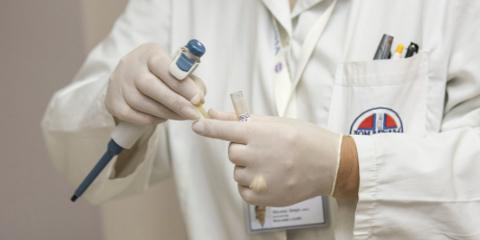
6 Melanoma Treatment Options
Melanoma is a very serious form of skin cancer. The American Cancer Society estimates that in 2016, about 76,380 new melanomas will be diagnosed, and over 10,000 people will die from the disease. If caught early enough, however, melanoma can have an excellent cure rate. A qualified dermatologist or healthcare professional at the Dermatology & Skin Surgery Center near Pinehurst, North Carolina, provides comprehensive and preventative skin care for optimal health. Melanoma can occur anywhere on the body. The primary cause of this type of skin cancer is UV exposure from the harmful rays of the sun and tanning beds. Typical symptoms of this form of skin cancer include a new, unusual growth or a change in an existing mole’s size, shape, or color. If you notice any of these symptoms, it should be immediately examined by a dermatologist. Melanoma treatment options are contingent on how far the cancer has spread. Dermatologists and oncologists rate the progression of the disease on a scale of 1 to 4, with 4 rating indicating an advanced-stage cancer that has spread to other parts of the body.  Some of the melanoma treatment choices to discuss with your dermatology specialist are:
Some of the melanoma treatment choices to discuss with your dermatology specialist are:
- Radiation Therapy: As a proven method of action for fighting cancer, this process uses high-energy rays to reduce the size of tumors and stop cancer cells from growing.
- Chemotherapy: This drug treatment administers anticancer
- Targeted Therapy: Drugs that target the specific components of melanoma cells work differently than standard chemotherapy drugs do. Targeted therapy destroys only the cancer cells while leaving normal cells intact.
- Immunotherapy: Scientists have found a way to use medications to stimulate a person’s own immune system to recognize and fight cancer cells.
- Surgery: If the melanoma is found early, surgery to remove the cancer is often the preferred cure.
- MOHS: In this clinical procedure, the removed tissue is microscopically examined on-site by a specially trained MOHS surgeon. MOHS surgery ensures complete cancer removal during the process and the dermatologist is able to minimize the loss of healthy tissue.
It is often difficult to tell the difference between melanoma and an ordinary mole, so regular visits to a dermatologist are imperative. Visit the Dermatology & Skin Surgery Center’s website to learn more, or call them today to make an appointment. In Moore County call (910) 673-8410; in Davidson County call (336) 475-8410; in Stanly County call (704) 982-8410; and in Randolph County call (336) 625-8410.

